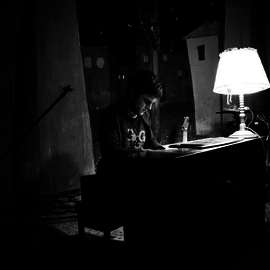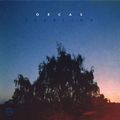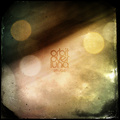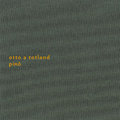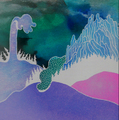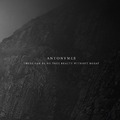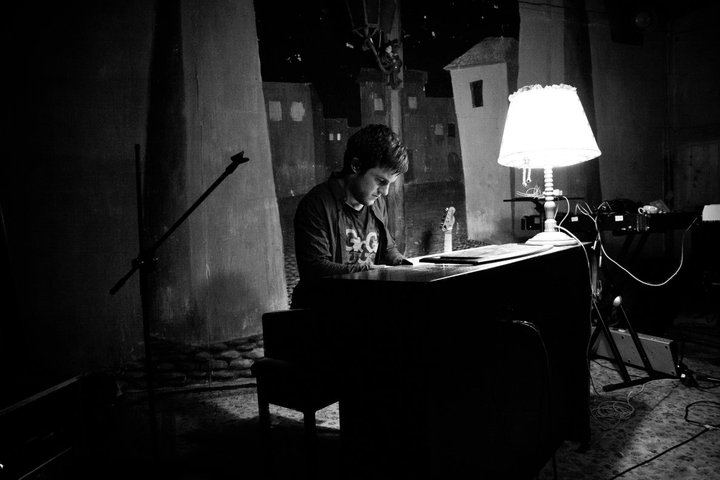 I asked Carlos about being a pianist today, creating the album and his plans for the future - it also involves a tour through Europe!
I asked Carlos about being a pianist today, creating the album and his plans for the future - it also involves a tour through Europe!
Carlos Cipa is a young pianist, who has recently released his debut album on the German cultlabel Denovali. MoeskoMusic really likes his work, and has already reviewed it - you can read it here.
Az interjút magyarul is elolvashatod.
'The Monarch and the Viceroy' is a brand new segment in the already colourful Denovali palette. How did you get in touch with the label?
Oddly enough, it happened the way it usually never does. I sent the album to a few record labels and the guys from Denovali answered right away. Things happened rather quickly after that and we knew right from the beginning that we would be very comfortable working together.
You mention Debussy and Satie as sources of inspiration. How about contemporaries, who influence you the most?
Currently, I am deeply into Thomas Adès and not long ago I discovered beautiful pieces by Krzysztof Penderecki, you should definitely check out some of his current works. Not least I absolutly admire the music of Max Richter. He really found a way to touch me deeply. Besides classical music I am into rock music; one of my all-time favourite Bands is Thrice from California and my latest discoveries Folk/Singer-Songwriter James Vincent McMorrow from Ireland and Indie-Folk heroes Other Lives from Oklahoma, UnitedStates.
Technological development makes it easier and easier to become a musician. Do you think that classical music training still gives people something that can't be substituted by anything else?
Of course, for some instruments you need a lot of time to learn play them, especially strings, but the piano as well. But if you choose the path of a classical instrumental career, you have to find a way out in time. For me, somewhere at the end of my “classical music education”, it was of capital importance to write and play my own music and fully understand music itself. As a classical trained musician you must strike a balance between the profoundness of classical music and the lightness of popular music, I think this might be a good way.
Classical music has become surprisingly popular since the late-2000s. It usually happens to be a kind of answer from musicians to over-electronized sounding. Do you think listeners tend to choose this music for the same reason - being fed up with electro?
I can only speak for myself, who was never really interested in electronic music; I tend to fall asleep at a club, while listening to dance/house/electro music. But I think the entering of electronic sounds into the music scene is a great achievement and has brought us a lot of wonderful music. But most of the music heard in clubs is just not written for the ears of a true music lover/listener and so I think it is obvious they choose to turn aside into other directions. But I am wondering why turn to (neo-)classical music; maybe one reason might be the rising popularity of film music. On the other hand, you find more and more classical musicians who leave their path and change their way in the direction of popular music. Nevertheless, I am sure we can really look forward to a lot of interesting music coming up this way.
How much of the experience, gained in other music genres like jazz or rock, can be exploited when you work in classical territories?
I like the approach of jazz music to forming chords or harmonics in general; from rock music I mostly got the sense for rhythm. But what you learn the most from other musical genres than classical music is writing your own music. Only through the experience of playing our own songs in my first (hardcore) band Pangaea, I felt that interpreting classical literature on the piano doesn’t fullfill me at all and I have to start writing my own songs on the piano.
Your debut album is full of complex song structures, but rhythm seems to be very important at the sametime. Which comes first when you start composing a new piece?
I can’t answer this precisely, sometimes an idea emerges out of an improvisation, and sometimes I plan the exact chord progression or the song structure. Sometimes I write two or three completely different parts and just see them connected to each other. While composing, I do not really have a certain image in my head; I rather let myself drift by the music or the sound itself. I have gained a certain feeling for rhythm by playing drums in different bands over several years. Since I started to play, my rhythmical feeling has evolved to a complete new level and I have got a complete different relation to music in general. However I am consistently surprised how important rhythm really is; mostly it is the fundament for great music.
Most pieces are quite dense, mainly the left hand section. It often sounds like one neverending loop swirling in the back. How much of it is digital mastering? Or is it "just" the pedals?
I don’t understand what you really mean, but I hope I can bring some enlightenment. My left hand is almost always responsible for harmonic backing, but I tried to vary the accompanying figures from song to song. They are mostly improvised, though I play them always exact the same. On my record, there are only a few bars, where I don’t use the sustain pedal, because I really like the open sound of the piano. We recorded the songs in two sessions, most of them were done in one take, only a few needed some cuts. After recording we just worked a little on the sound, but never added any musical elements to them afterwards.
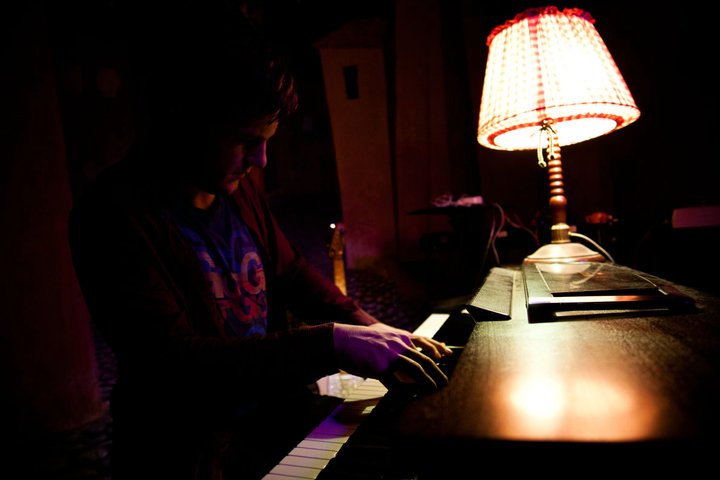
Many musicians go to church for achieving a Stars of the Lid-like panoramic ambience. Your music more likely bodes a small studio, right? Did you want to have this very intimate feeling from the very beginning?
Well, I never entered a studio; the songs were recorded on my own piano in my living room. While composing the pieces, I never thought of an exact atmosphere or sound of the record, I just wanted the music itself to get the most attention. I thought of recording in a different place, but playing on my own piano seemed much more important, though.
Your album has an interesting title. For me it suggests a tale. Is there a story behind?
I’ve picked up the phrase while watching a movie and just liked the idea of naming my record after it; it is very important for me that every single listener of my music can make up his/her own story to the title and the meaning of the songs. I never write a song because of a subject or even a title I have in my head. All songs were named after composing. “The Whole Truth” for example is the title of an episode of “Six Feet Under”, but the song was written in a rather sad period of my life and I can say, the title is a perfect match. However, be creative and use your imagination!
So what's next? Are planning to continue recording piano solos?
Of course there are plans. Whereas for the first record, I wanted to focus on the piano, which will always be my main instrument, I´d like to add a lot more instrumental colour to the picture in future.I have great interest in other instruments, I have been playing pipe organ for five years and there is an old reed organ from my grandmother in the basement, which will definitely be a part of my next record. Furthermore I lately collected dusty instruments, that haven’t been played in a long time, from some friends, like a hammered dulcimer or a beautiful banjo, who will find its place in my music as well.
Denovali organises a great festival called Swingfest, where you too will appear. Where else can we find you nowadays?
Early October I will play a small tour through Europe with my labelmates Blueneck, which luckily will bring me to Budapest as well. On October 2nd I will play at the Akvárium Klub. If all goes well i will play on a real piano instead of an electric piano, so spread the word!

